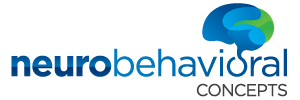What is it?
What to look for
Of course many forms of inattention and impulsivity are normal in early childhood. But one study found that youngsters with ADHD display those behaviors at three times the frequency of their unaffected peers. Though boys are diagnosed with ADHD much more frequently than girls, experts believe that the actual prevalence in boys and girls is just about even, though girls experience the disorder differently.
Causes
Diagnosis
Treatment
Psychotherapeutic: A variety of behavioral and psychotherapeutic methods have proven successful in managing the symptoms of ADHD. Parent-child interaction therapy, which focuses on teaching parents how to cultivate desired behaviors while minimizing the impulsive or inattentive ones, is often used effectively. Parent training is another that uses the family to address the symptoms, while cognitive behavioral therapy teaches a child to control his behaviors by understanding how his thoughts and feelings influence them. Close consultation with your child’s teachers can help him succeed despite his disorder. Tools such as a daily report card that targets desired behaviors can be effective. Social skills training may help him behave more appropriately with other children, and family therapy can help parents and siblings manage the stress created by the ADHD child’s needs and behavior.
Pharmacological: The most common medications prescribed for ADHD are psychostimulants. The two most widely used are known, generically, as methylphenidate and dextroamphetamine, which go by brand names like Ritalin and Adderall. What these drugs stimulate is the brain’s production of certain neurotransmitters that seem to activate the brain’s centers of attention and impulse control. They serve to focus the attention and curb the impulsivity and hyperactivity of kids with ADHD. Stimulant medications can have significant side effects, such as headaches, loss of appetite, and trouble sleeping. Some children are prescribed other, non-stimulant drugs approved for treatment of ADHD if the side effects of stimulants are troublesome or excessive. Medicating children with ADHD is a process of trial and observation, with overwhelmingly positive results—70% to 80% of kids have an excellent response to their first medication, and 15% will respond well to a second. While 20% to 30% are not helped by medication, or experience troublesome side effects, those effects are completely reversible by ending the course of treatment.
There is no cure for ADHD. Though many children will outgrow their diagnosis, more often than not symptoms persist into adulthood, and some people will benefit from continued professional help.
Other disorders to look out for
Frequently asked questions
No. ADHD is the result of abnormalities in the brain. Still, a disorganized or unaccommodating home life can make it harder for a child to deal with the symptoms of his disorder, and contribute to more acting out.
Will my child outgrow it?
Many children will grow out of the disorder, but symptoms very often persist into adulthood, and many people will continue to need professional help to manage it.
Will medications negatively affect my child’s brain?
No. Studies have shown that medications used to treat ADHD have no affect on the structure of the brain. A child can safely be on stimulant medications for many years.
Will medication affect my child’s learning experience?
Yes, and beneficially. ADHD kids on a course of medication find that they are much more able to concentrate and get more out of their time at school than they did before.
Will diet help with the ADHD?
There is no proven link between diet and the signs and symptoms of ADHD (or lack thereof).
Are ADHD brains different than others?
Yes. Brain scans show an average difference in volume of the brain areas concerned with attention and impulse control of 3% between ADHD brains and normal ones.



